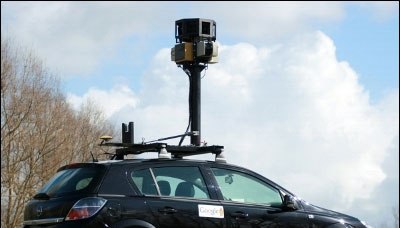

Google is to offer an opt-out to users who object to having information from their wireless access point included in its location database software.
This keeps a promise made by the company in September that it would provide a facility which would prevent Google’s Location Server from collecting publicly broadcast information about wireless networks and their geographic location to use in its location-based services such as Google Maps for Mobile on Android smartphones.
Accordingly, the company said in September it would offer a way for users to opt out of Google’s location services. The method is now available.
Users may navigate to their router’s settings and change the wireless network name, known as the service set identifier (SSID), so that it ends in “_nomap.” So if a user’s Wi-Fi network name is Foxtrot, the name would be revised to “Foxtrot_nomap.”—for example.
Google has provided additional instructions, including links with specific details on how to change a router’s SSID, in its help centre. The web page includes links to instructions for making changes in wireless gateways from Apple, Belkin, Linksys, US Robotics and Netgear.
Google’s global privacy counsel Peter Fleischer explained why Google was using this method in particular in a blog post.
“As we explored different approaches for opting-out access points from the Google Location Server, we found that a method based on wireless network names provides the right balance of simplicity as well as protection against abuse.”, Fleischer said, “ Specifically, this approach helps protect against others opting out your access point without your permission.”
In other words, it’s designed to prevent fraudulent opt-outs. Fleischer said other location service providers use the same nomap string, adding that it hopes the code will be globally adopted for consistency’s sake.
While apparently well-intentioned, particularly after Google erred grievously with its Street View WiSpy incident in which it collected over 600 gigabytes of user data from WiFi networks, some members of the high-tech sector pounced on Google for offering a way they believe is too complicated for the average home internet user to figure out.
MG Siegler, long-time TechCrunch blogger turned venture capitalist for the CrunchFund, wrote on his personal blog, “Ninety-nine percent of the people who will want to do this will have absolutely no idea what any of the above paragraph means. I mean, this entire post is a joke, right? Please tell me this is a joke.”
John Grubb, owner of Keystone Computer Repair in Florida, told eWEEK via Google+, “I can tell you that the majority of our customers would have difficulty in completing this task. I can’t tell you how many times I’ve had to bail out (usually, new) customers who went into their routers and fouled up everything.”
Nvidia to partner with TSMC, Foxconn, Wistron, Amkor and SPIL to build $500 billion (£377…
American think tank warns about possible threat to US defence, after China imposes rare earth…
China is reportedly pursuing three alleged US NSA operatives, after cyberattacks on Chinese infrastructure
Chip making giant ASML mirrors other equipment makers, and outlines financial impact of Donald Trump's…
AI is transforming cybersecurity, offering faster defence and smarter attacks. Learn how businesses can harness…
Search engine giant being sued for £5 billion ($6.64 billion) damages over allegations for online…